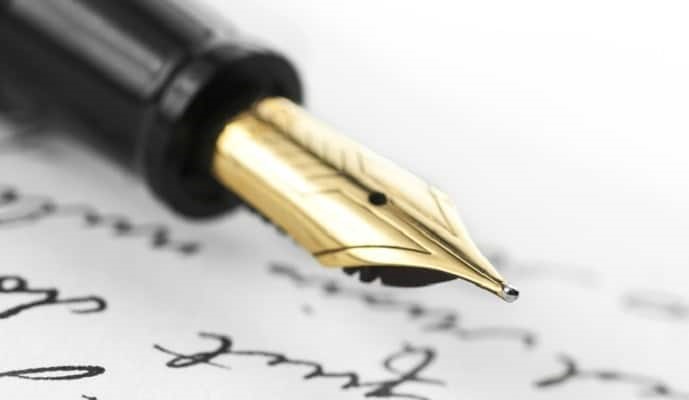Become a book editor plays a crucial role in refining manuscripts, compelling narratives, and ensuring the quality of published works. Book editing is a rewarding and essential occupation in the world of publishing. Book editors take manuscripts and ensure they are polished and succinct.

What are the Main Types of Book Editors?
Book editors include acquisitions editors who acquire manuscripts, proofreaders who ensure error-free text, copy editors who refine clarity and style, and developmental editors who shape manuscripts for publication. Each plays a key role in creating polished books for readers.
Developmental Editors
Developmental editors refine manuscripts by collaborating closely with authors to develop narrative structure, characters, themes, and plot, ensuring the work meets both authorial intent and audience expectations.
Role and Key Responsibilities:
Developmental editors are primarily concerned with the style, arc, and narrative of a manuscript. They often guide authors through the iterative process of developing the storyline, characters, themes, and plot.
Copy Editors
Copy editors polish written content by correcting errors in grammar, punctuation, and spelling, ensuring clarity and adherence to style guidelines before publication.
Role and Key Responsibilities:
Copy editors work their way through the text, correcting grammar, punctuation, and spelling mistakes. These editors always seek consistency, clarity, and sometimes factual accuracy as well.
Proofreaders
Proofreaders carefully review written content to correct grammar, punctuation, spelling, and formatting errors. They ensure clarity and adherence to style guidelines before publication or distribution.
Role and Key Responsibilities:
Proofreaders are the final gatekeepers, poring over the revised manuscript at the very end to filter out the last few remnants of grammar, punctuation, and spelling before it gets published.
Acquisitions Editors
Acquisitions editors source and acquire new content for publication by evaluating manuscripts, negotiating contracts, and shaping a publisher’s catalogue to meet audience preferences.
Role and Key Responsibilities:
Acquisitions editors must explore new sources for content and non-traditional authors, discover new manuscripts, and recruit new freelancers, all of which require more time and investment than ever. The acquisition process demands more upfront work and a creative message: This content is fresh, new, different, and right for us. Simultaneously, authors face increased expectations to translate their ideas into three-dimensional books that meet the needs of their audiences and present new ways to convey information.
What does a Book Editor do?

A book editor refines manuscripts by correcting errors in grammar, punctuation, and style, while also enhancing clarity, structure, and thematic consistency. They collaborate with authors to shape and polish manuscripts into compelling and marketable books.
Evaluating Manuscripts and Providing Feedback
Book editors read manuscripts and evaluate their quality and fit. They offer criticism or advice to the authors on how to suggest revisions and improve the manuscript.
Developing and Refining Content Structure
Editors refine manuscripts that authors have drafted, guiding them to reveal subplots and an overarching narrative, improving structure and transitions.
Correcting Grammar, Punctuation, and Spelling Errors
Editors correct typos, punctuation errors, and grammatical mistakes, as well as address more substantive issues such as quotes that do not fit into the context. Editors do not necessarily adjust the style of a piece, and the relationship between editor and writer is not one of deference. Instead, it is a codependent partnership where each party learns to rely on the other and encourages each other to excel in their roles.
The editor’s ability to contribute to the piece without seeking credit is not about originality, but rather a willingness to play a foundational, supportive role. This requires respect for the writer’s work, symbolised by the editorial scrub brush used to refine the writer’s words without overpowering them. Ideally, the less editorial work an article requires, the better; when an essay feels like a true collaboration between author and editor, it has achieved its goal.
Ensuring Consistency and Clarity in Writing
Editors smooth the writing so the prose is consistent, ensuring that the author’s tropes and idiosyncrasies are front and center, yet indicating that someone has attended to the story — behind the scenes, but palpable.
Collaborating with Authors and Other Editors
Editors frequently interact with authors, other editors, and others in the development and refinement of their manuscripts. They often work with manuscripts over extended periods: authors and sometimes editors review several drafts of their manuscripts.
Preparing Manuscripts for Publication
Editors craft manuscripts, entirely reshaping them to conform with industry standards and eliminate errors.
Average Salary Range of a Book Editor
Book editors’ salaries vary based on experience, education, location, and the type of publishing house. Entry-level editors start with lower salaries, while those with more experience or in specialised areas may earn higher incomes. Geographic location also plays a role, with urban areas typically offering higher pay due to higher living costs and proximity to major publishing centers.
Salary Ranges Based on Experience and Location
Exact pay ranges for book editors vary considerably based on experience, in both the UK and the US, and depend on the type of publishing house. Entry-level editors typically start between £20,000 and £30,000 in the UK, and $30,000 to $45,000 in the US, depending on the publisher and market. With several years of experience, editors advance to mid-level positions earning between £30,000 and £45,000 annually in the UK, and $45,000 to $60,000 in the US. Senior editors or those in specialised niches may earn £45,000 to £70,000 or more in the UK, and $60,000 to $90,000 or more in the US.
Comparison of Salaries in Different Regions and Types of Publishing
There could be regional disparities, with urban areas and institutions near or with a concentration of publishing houses paying higher wages. Similarly, compared to personnel in smaller presses or independent publishers, editors who work for major publishing houses or in niche imprints earn more.
Factors Influencing Book Editor Salaries
Several factors can influence book editor salaries:
- Experience: More experience often brings higher salaries, greater stature, and increased importance.
- Education and Certifications: The more education you have and the more professional certifications you obtain, the greater your earning potential.
- Location: Geographic location significantly influences salary levels. Higher salaries are often found in urban areas, assuming the increased cost of living is manageable.
- Discipline/Genre: Editors in general trade houses or working in the humanities tend to receive higher pay.
Essential Skills of a Book Editor

To become a successful Book Editor, you need to bring together technical and soft skills.
Technical Skills
- Mastering Grammar and Style: Good editors must be skilled in grammar, punctuation, and style to ensure that manuscripts are well-executed and professional.
- Advanced Skills in Using Editing Software: Knowing how to use editing software/tools includes providing feedback on draft texts to authors, creating proofs, revising the final version, and tracking changes.
Soft Skills
- Detail-Oriented: Must be detail-oriented to find any errors in manuscripts.
- Communication: A good editor must have strong communication skills (either written or spoken, depending on the medium of their work) to provide constructive feedback to authors and to liaise with other editors.
- Time Management: Effective time management skills help editors meet deadlines and manage multiple projects.
- Critical Thinking Skills: Critical thinking skills help editors judge the quality of a manuscript and provide constructive feedback.
Career Development Tips for Book Editors
- Staying Up to Date: To stay current with industry developments, continuous learning is essential.
- Networking Through Professional Organisations and Conferences: Professional organisations and conferences are valuable for career support and networking with like-minded individuals.
- Gaining Experience Through Internships and Freelance Work: Internships and freelance work are crucial for building skills and reputation. Being skilled isn’t always enough to secure a job; practical experience is invaluable.
- Continuously Improving Editing Skills and Knowledge: Editors must continually enhance their editing skills and knowledge to succeed. Editing requires ongoing practice and attention to detail. As experience grows, editors often find significant improvement in their abilities.
Qualifications and Requirements for Book Editor
To become a Book Editor specific educational and professional requirements must be met.
Educational Requirements
- Degree in English, Journalism or a Similar Discipline: A degree in English, journalism, or a similar discipline is the minimum required post-secondary education for this position. Typically, a bachelor’s degree is the minimum requirement.
- Relevant Coursework or Certification Programmes: Engaging in relevant coursework or programmes to obtain certifications can enhance one’s skillset and knowledge base.
Certification Requirements
- Certification from Professional Organisations: Certification from professional organisations such as the Editorial Freelancers Association (EFA) demonstrates competence and adherence to professional standards.
- Continual Professional Development: Editors are encouraged to pursue ongoing professional development to stay current with industry trends and best practices.
Experience Requirements
- Internships and Entry-Level Positions: Prospective editors typically need to gain real experience in publishing, either through an internship or an entry-level position in a publishing firm, to develop the necessary skills and reputation.
- Freelance work and Freelance Platforms: Editors can gain valuable experience and build their portfolio by taking on freelance projects through various freelance platforms, enhancing their versatility and exposure.
How to Become a Book Editor?
To become a book editor, earn a degree in English, journalism, or a related field. Gain experience through internships or entry-level positions in publishing. Obtain certifications from organisations like the EFA, engage in professional development, and network within the industry to advance your career.
Completing Relevant Education
- A Bachelor’s degree in English, Journalism or a Related Field: The first requirement to become a journalist is to complete a bachelor’s degree in English, journalism, or a related field.
- Combination of Specialised Courses and Editing Programs: Participate in specialised courses and editing programs to acquire hands-on skills and knowledge.
Gaining Practical Experience
- Internships and Freelance Editing Work: Gain hands-on experience through internships or freelance editing work to develop skills and build a portfolio.
- Collaborating with Authors: Collaborate with authors on editing projects to gain insight into different writing styles and genres.
Obtaining Certification
- Certification Through Professional Organisations Such As The EFA: To demonstrate your competency and commitment to professional standards, obtain certification.
- Professional Development: Engage in continuous professional development activities to stay updated with industry trends and enhance your skills.
Continuing Professional Development
- Workshops, Seminars, Webinars: Engage in continuous professional development through various training opportunities.
- Advanced Training and Specialisations: Pursue advanced training and specialisations to further develop your expertise.
Networking
- Find Professional Organisations: Join a professional association, such as the Editorial Freelancers Association (EFA). These bodies can provide support to new and seasoned freelance editors alike, and also help you network with other professionals and stay updated with the latest developments in the industry.
- Attending Publishing Events and Conferences: Attend publishing events and conferences to learn from experts and make or seek contacts.
Get Qualified as a Book Editor
Ebook Marketing Diploma, Bookkeeping Online Course, Masterful Use of QuickBooks for Bookkeeping
Frequently Asked Questions (FAQ)
- Why should you be a Book Editor?
The position of book editor promises to be a rewarding and purposeful career. You will shape and polish manuscripts, aid authors in achieving their goals, and contribute to the publication of great books. The position commands great respect, fosters high levels of job satisfaction, and pays very well. What’s more, because you will have such a large role in the success of a book, it is a position with tremendous personal potential.
- Is Book Editing a Good Career Choice for You?
Book editing is an excellent career choice if you have a passion for reading and literature, enjoy working with language, and have a keen eye for detail. It suits individuals who are meticulous, have strong communication skills, and can manage their time effectively. If you thrive in a collaborative environment and are committed to producing high-quality written content, this career could be highly fulfilling for you.
- How Much Does a Book Editor Earn?
Book editor salaries vary depending on experience, location in the world, and the type of publishing you’re working for. Someone just getting started will likely earn between £20,000 and £30,000 in the UK or $30,000 to $45,000 in the US. Mid-level editors with experience can expect between £30,000 and £45,000 in the UK or $45,000 to $60,000 in the US. Senior editors or those in specialty roles can earn £45,000 to £70,000 or more in the UK or $60,000 to $90,000 or more in the US.
- Which Qualifications Can Help with a Career in Book Editing?
You need a bachelor’s degree in English, journalism, or another related field. You can learn important skills and be exposed to essential knowledge in special courses and editing seminars. Earning certification from organisations such as the Editorial Freelancers Association (EFA) helps demonstrate competence and professionalism to clients. Internships and freelance editing work are good ways to build skills and a reputation.
- Do I Need to Be an Experienced Editor to Get Started?
No, you don’t need to have edited anything before. Plenty of editorial assistants start with a bachelor’s degree and some work experience – either in internships or freelancing. Enthusiasm, an ability to learn, and a love of reading and editing are essential.
- Book Editor Career Outlook
On the other hand, the career prospects for book editors seem bright, as there will always be continuous demand for well-written content. Since publishers will always be in search of more creative content, there will always be a need for good copy editors. Furthermore, it is one of the few careers that offers good job security, great salary packages, and continued advancement within the industry, towards editor, designer, or higher management roles.
- Book Editor Hierarchy and Progressing Within the Role
The typical career progression for book editors starts with entry-level positions as editorial assistants or junior editors. With experience and further training, professionals can advance to mid-level roles such as associate editor or senior editor. Advanced roles may include positions such as executive editor, editorial director, or editor-in-chief. Continuous learning, skill enhancement, and obtaining advanced certifications support career advancement.
- Book Editor Exit Options and Opportunities
The fact that editors have many exit opportunities beyond their first job gives a clear indication that the skillset they have built on the job is widely transferable into publishing, content creation, and communications. With some experience under their belt, editors can envision careers as literary agents, content managers, or publishing consultants. Some may aspire to obtain higher degrees and become academics or researchers in the field of literature publishing, or both.


